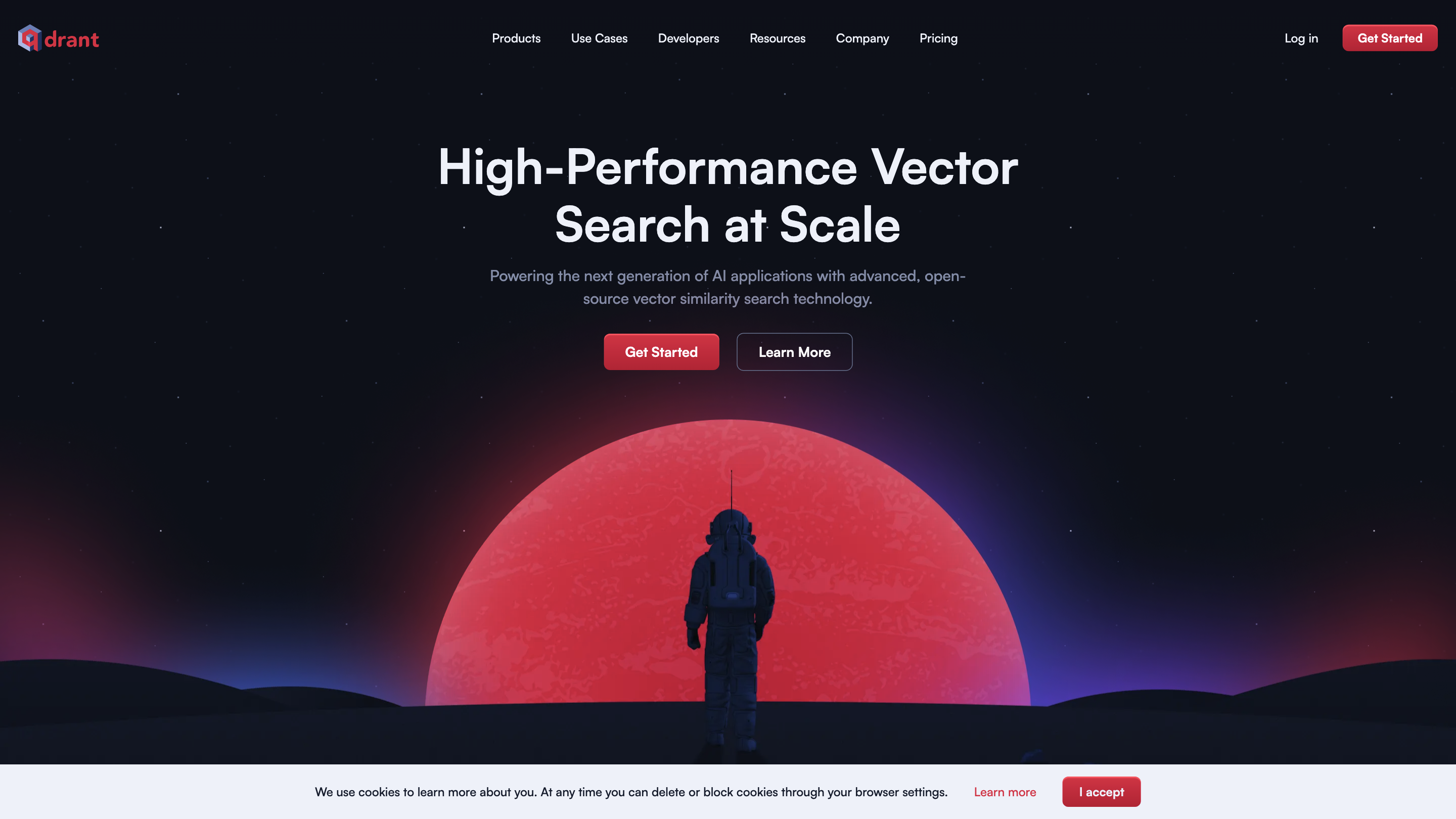Qdrant
Open siteCoding & Development
Introduction
Open-source Vector Database and Search Engine.
Qdrant Product Information
Qdrant Vector Database
Qdrant is an open-source vector database and similarity search engine designed to handle high-dimensional vectors for performance and massive-scale AI applications. It enables fast, scalable similarity search, retrieval-augmented generation, and other vector-based use cases across embeddings, text, images, and multimodal data. It is built in Rust for speed and reliability and offers cloud-native deployment options, including self-hosted, cloud, and enterprise solutions.
Key Value Propositions
- High-performance vector search at scale for AI-powered applications
- Open-source core with enterprise-ready features and cloud options
- Cloud-native, scalable architecture with zero-downtime upgrades
- Simple deployment with Docker and a lean API for easy integration
- Efficient storage with memory compression and disk offloading
- Multimodal and multi-vector support for advanced use cases
How It Works
- Store embeddings and payloads. Ingest high-dimensional vectors along with associated metadata.
- Index vectors for similarity. Build and maintain indices that enable fast nearest-neighbor queries.
- Query and filter. Use cosine or other distance metrics, with payload filtering to refine results.
- Scale and deploy. Scale vertically and horizontally, with zero-downtime upgrades and cloud options.
Qdrant is purpose-built in Rust for robust performance and reliability even when processing billions of vectors. It integrates with major embeddings and frameworks via Docker, making it easy to deploy locally or in the cloud.
Use Cases
- Retrieval Augmented Generation (RAG)
- Advanced Search for high-dimensional data
- Recommendation Systems
- Data Analysis and Anomaly Detection
- AI Agents that rely on fast vector similarity for decision-making
How to Get Started
- Quick deployment with Docker: pull and run the Qdrant container.
- Use the lean API to integrate with your existing apps and embedding models.
- Explore cloud, hybrid cloud, and enterprise deployment options for production-scale needs.
Core Features
- High-performance, open-source vector database for large-scale similarity search
- Cloud-Native architecture with scalability and zero-downtime upgrades
- Quick deployment in any environment using Docker and a lean API
- Memory-efficient storage with built-in compression and disk offload
- Rust-powered backend for speed and reliability
- Support for multiple use cases: Advanced Search, RAG, Recommendations, Anomaly Detection, AI Agents
- Integrations with leading embeddings and frameworks
- Deployment options: Qdrant Cloud, Qdrant Hybrid Cloud, Qdrant Enterprise Solutions
Quick Start (Conceptual)
- Run: docker pull qdrant/qdrant
- Start server: docker run -p 6333:6333 qdrant/qdrant
- Index vectors and payloads, then perform similarity queries with optional payload filters
Safety and Legal Considerations
- Ensure compliant usage with data privacy and licensing for embedded data and model outputs. Validate data consent for vector indexing and retrieval.
Notable Benefits
- Turn embeddings or neural encoders into full-fledged applications for matching, searching, and recommending
- Flexible, scalable solution suitable for both local testing and enterprise-scale deployments
Documentation and Resources
- Official docs, GitHub, roadmaps, benchmarks, and community forums available for deeper integration guidance and troubleshooting.
